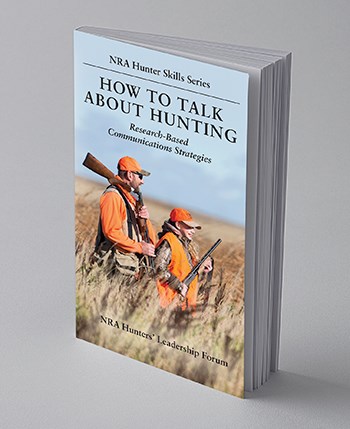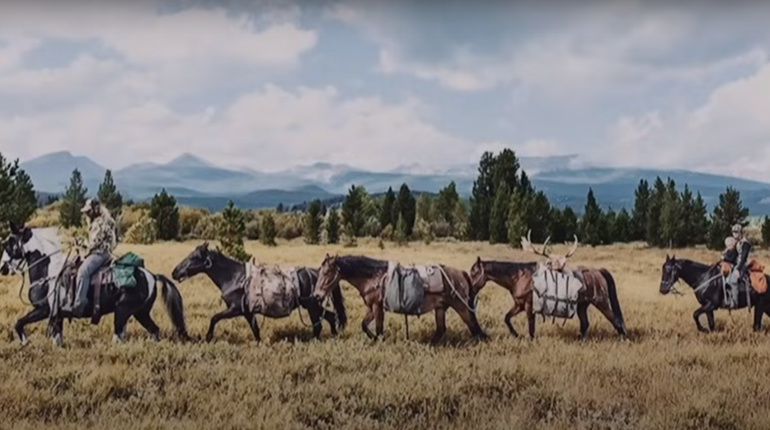
A recent decrease in hunting participation after experiencing growth during the COVID-19 pandemic has some in the hunting community worrying that the national R3 (Recruitment, Retention and Reactivation) movement is not enough to save this cherished American pastime.
While the Council to Advance Hunting and the Shooting Sports reported that hunting-license sales in 2020 jumped 5% over 2019, hunter participation has now returned to pre-pandemic levels. And a recent study by the national outdoor survey research firm Responsive Management shows that public acceptance of hunting has decreased in all nine categories measured—including for the purposes of wildlife management, protection of property and obtaining locally sourced food.
To reverse this trend and secure hunting’s future, we must do two things: (1) bolster efforts to promote the critical role that hunters and recreational shooters play in sustaining our renewable wildlife resources and (2) build cultural support for hunting.
 Recognizing that ongoing public support of hunting is essential, in 2014, the NRA launched the NRA Hunters’ Leadership Forum (HLF) to address the escalating cultural, political, demographic and social challenges to hunting in the 21st century. In 2016, the NRA HLF hired Responsive Management to conduct the nation’s first-ever groundbreaking study regarding Americans’ attitudes toward hunters, hunting, animal rights and animal welfare. Surveys and focus groups examined public opinions on hunting, sport shooting, firearms and the use of animals; gauged support for hunting based on species and hunting method; and tested the effectiveness of pro-hunting messages, to name just a few topics. The NRA then released the research-based book, How to Talk about Hunting: Research-Based Communications Strategies. The goal: to teach hunters, hunter-backed conservation organizations and wildlife professionals to be communicators whose messages resonate even with non-hunters and counter the misinformation espoused by animal-rights extremists.
Recognizing that ongoing public support of hunting is essential, in 2014, the NRA launched the NRA Hunters’ Leadership Forum (HLF) to address the escalating cultural, political, demographic and social challenges to hunting in the 21st century. In 2016, the NRA HLF hired Responsive Management to conduct the nation’s first-ever groundbreaking study regarding Americans’ attitudes toward hunters, hunting, animal rights and animal welfare. Surveys and focus groups examined public opinions on hunting, sport shooting, firearms and the use of animals; gauged support for hunting based on species and hunting method; and tested the effectiveness of pro-hunting messages, to name just a few topics. The NRA then released the research-based book, How to Talk about Hunting: Research-Based Communications Strategies. The goal: to teach hunters, hunter-backed conservation organizations and wildlife professionals to be communicators whose messages resonate even with non-hunters and counter the misinformation espoused by animal-rights extremists.
The research also shed light on a critical point: Programs to improve hunting’s cultural acceptance should not be confused with programs such as R3, aimed at increasing hunting’s participation. The former must precede the latter for R3 to work. Fortunately, promoting hunting in the court of public opinion is not a matter of changing Americans’ values but of reaffirming them. The research shows most Americans (about 78% in 2016 and 74% in 2023) do not have a negative image of hunting and hunters. Maintaining this support is critical, especially when considering hunting-related ballot initiatives nationwide.
In standing with hunters—as the nation’s leader in hunter safety, education and training, and through its support of critical programs such as Hunters for the Hungry—the NRA will remain on the frontlines. However, we cannot do it alone. A national campaign to promote hunting’s cultural acceptance involves planning and funding. Perhaps a lesson can be learned from the fishing and boating side of our outdoor industry, as seen through the Dingell-Johnson (DJ) Sport Fish Restoration Act. The equivalent to our Federal Aid in Wildlife Restoration Act of 1937—commonly known as the Pittman-Robertson (PR) Act—DJ garnered $399 million in excise tax receipts in 2022. The DJ funds, like PR funds, are administered by the U.S. Fish and Wildlife Service (USFWS). The USFWS recently announced a cooperative agreement with the nonprofit Recreational Boating & Fishing Foundation. It will set aside $70 million over a five-year period to fund the National Outreach and Communication Program to increase participation in those activities, enhance public communications and support aquatic conservation.
While PR excise taxes in 2022 exceeded $1.5 billion—considerably more than what was collected through DJ—the hunting community lacks a nationally funded campaign. Imagine the ground we would cover if we followed suit and paired R3 efforts with such a campaign! By being as passionate about increasing cultural support for hunting as we are about going hunting, we will ensure legal, regulated hunting remains safe on our watch and into the future.

































